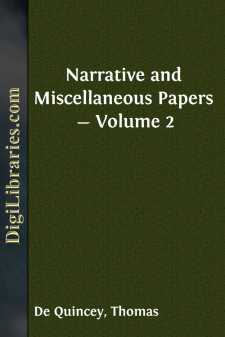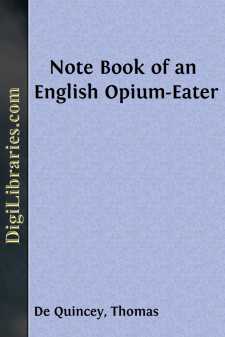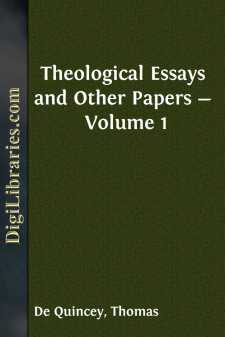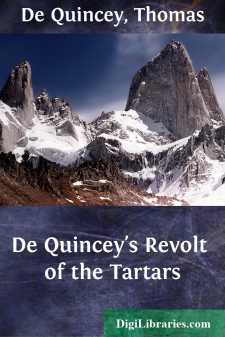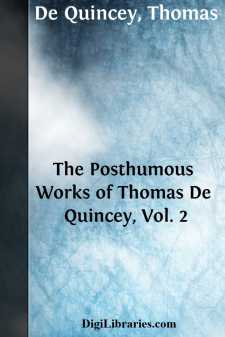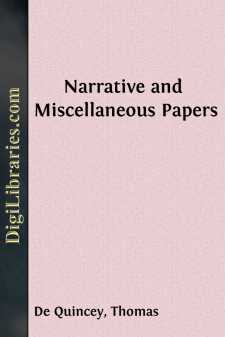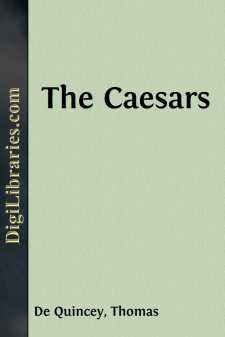Categories
- Antiques & Collectibles 13
- Architecture 36
- Art 48
- Bibles 22
- Biography & Autobiography 813
- Body, Mind & Spirit 142
- Business & Economics 28
- Children's Books 17
- Children's Fiction 14
- Computers 4
- Cooking 94
- Crafts & Hobbies 4
- Drama 346
- Education 46
- Family & Relationships 57
- Fiction 11829
- Games 19
- Gardening 17
- Health & Fitness 34
- History 1377
- House & Home 1
- Humor 147
- Juvenile Fiction 1873
- Juvenile Nonfiction 202
- Language Arts & Disciplines 88
- Law 16
- Literary Collections 686
- Literary Criticism 179
- Mathematics 13
- Medical 41
- Music 40
- Nature 179
- Non-Classifiable 1768
- Performing Arts 7
- Periodicals 1453
- Philosophy 64
- Photography 2
- Poetry 896
- Political Science 203
- Psychology 42
- Reference 154
- Religion 513
- Science 126
- Self-Help 84
- Social Science 81
- Sports & Recreation 34
- Study Aids 3
- Technology & Engineering 59
- Transportation 23
- Travel 463
- True Crime 29
Narrative and Miscellaneous Papers - Volume 2
Description:
Excerpt
Some years ago, some person or other, [in fact I believe it was myself,] published a paper from the German of Kant, on a very interesting question, viz., the age of our own little Earth. Those who have never seen that paper, a class of unfortunate people whom I suspect to form rather the majority in our present perverse generation, will be likely to misconceive its object. Kant's purpose was, not to ascertain how many years the Earth had lived: a million of years, more or less, made very little difference to him. What he wished to settle was no such barren conundrum. For, had there even been any means of coercing the Earth into an honest answer, on such a delicate point, which the Sicilian canon, Recupero, fancied that there was; [Footnote: Recupero. See Brydone's Travels, some sixty or seventy years ago. The canon, being a beneficed clergyman in the Papal church, was naturally an infidel. He wished exceedingly to refute Moses: and he fancied that he really had done so by means of some collusive assistance from the layers of lava on Mount Etna. But there survives, at this day, very little to remind us of the canon, except an unpleasant guffaw that rises, at times, in solitary valleys of Etna.] but which, in my own opinion, there neither is, nor ought to be,— (since a man deserves to be cudgelled who could put such improper questions to a lady planet,)—still what would it amount to? What good would it do us to have a certificate of our dear little mother's birth and baptism? Other people—people in Jupiter, or the Uranians—may amuse themselves with her pretended foibles or infirmities: it is quite safe to do so at their distance; and, in a female planet like Venus, it might be natural, (though, strictly speaking, not quite correct,) to scatter abroad malicious insinuations, as though our excellent little mamma had begun to wear false hair, or had lost some of her front teeth. But all this, we men of sense know to be gammon. Our mother Tellus, beyond all doubt, is a lovely little thing. I am satisfied that she is very much admired throughout the Solar System: and, in clear seasons, when she is seen to advantage, with her bonny wee pet of a Moon tripping round her like a lamb, I should be thankful to any gentleman who will mention where he has happened to observe—either he or his telescope—will he only have the goodness to say, in what part of the heavens he has discovered a more elegant turn-out. I wish to make no personal reflections. I name no names. Only this I say, that, though some people have the gift of seeing things that other people never could see, and though some other people, or other some people are born with a silver spoon in their mouths, so that, generally, their geese count for swans, yet, after all, swans or geese, it would be a pleasure to me, and really a curiosity, to see the planet that could fancy herself entitled to sneeze at our Earth. And then, if she (viz., our Earth,) keeps but one Moon, even that (you know) is an advantage as regards some people that keep none. There are people, pretty well known to you and me, that can't make it convenient to keep even one Moon. And so I come to my moral; which is this, that, to all appearance, it is mere justice; but, supposing it were not, still it is our duty, (as children of the Earth,) right or wrong, to stand up for our bonny young mamma, if she is young; or for our dear old mother, if she is old; whether young or old, to take her part against all comers; and to argue through thick and thin, which (sober or not) I always attempt to do, that she is the most respectable member of the Copernican System.
Meantime, what Kant understood by being old, is something that still remains to be explained. If one stumbled, in the steppes of Tartary, on the grave of a Megalonyx, and, after long study, had deciphered from some pre-Adamite heiro-pothooks, the following epitaph:—'Hic jacet a Megalonyx, or Hic jacet a Mammoth, (as the case might be,) who departed this life, to the grief of his numerous acquaintance in the seventeen thousandth year of his age,'—of course, one would be sorry for him; because it must be disagreeable at any age to be torn away from life, and from all one's little megalonychal comforts; that's not pleasant, you know, even if one is seventeen thousand years old. But it would make all the difference possible in your grief, whether the record indicated a premature death, that he had been cut off, in fact, whilst just stepping into life, or had kicked the bucket when full of honors, and been followed to the grave by a train of weeping grandchildren. He had died 'in his teens,' that's past denying. But still we must know to what stage of life in a man, had corresponded seventeen thousand years in a Mammoth. Now exactly this was what Kant desired to know about our planet. Let her have lived any number of years that you suggest, (shall we say if you please, that she is in her billionth year?) still that tells us nothing about the period of life, the stage, which she may be supposed to have reached. Is she a child, in fact, or is she an adult? And, if an adult, and that you gave a ball to the Solar System, is she that kind of person, that you would introduce to a waltzing partner, some fiery young gentlemen like Mars, or would you rather suggest to her the sort of partnership which takes place at a whist-table? On this, as on so many other questions, Kant was perfectly sensible that people, of the finest understandings, may and do take the most opposite views. Some think that our planet is in that stage of her life, which corresponds to the playful period of twelve or thirteen in a spirited girl. Such a girl, were it not that she is checked by a sweet natural sense of feminine grace, you might call a romp; but not a hoyden, observe; no horse-play; oh, no, nothing of that sort. And these people fancy that earthquakes, volcanoes, and all such little escapades will be over, they will, in lawyer's phrase, 'cease and determine,' as soon as our Earth reaches the age of maidenly bashfulness. Poor thing! It's quite natural, you know, in a healthy growing girl. A little overflow of vivacity, a pirouette more or less, what harm should that do to any of us? Nobody takes more delight than I in the fawn-like sportiveness of an innocent girl, at this period of life: even a shade of espièglerie does not annoy me. But still my own impressions incline me rather to represent the Earth as a fine noble young woman, full of the pride which is so becoming to her sex, and well able to take her own part, in case that, at any solitary point of the heavens, she should come across one of those vulgar fussy Comets, disposed to be rude and take improper liberties....


